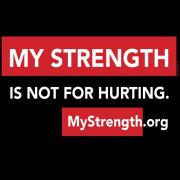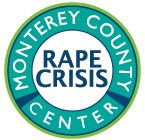Creating Change Through the MyStrength Club
July 1, 2019 by Derek Owens, Prevention Educator
 "I couldn’t be more proud of our prevention education program and the thousands of young people who have elected to be a part of our clubs over the years."
"I couldn’t be more proud of our prevention education program and the thousands of young people who have elected to be a part of our clubs over the years."
---
Last Friday, some of our prevention education team and executive staff traveled to Oakland, CA to meet with a team of evaluators from the Centers for Disease Control and Prevention (CDC’s) Division of Violence Prevention and the Public Health Institute (PHI). These researchers have spent more than a year analyzing the Monterey County Rape Crisis Center’s MyStrength club model to achieve a few goals:
- Provide suggestions for advancing our program activities
- Identify ways of providing program evaluation support to other Rape Prevention Education programs
- Describe opportunities and challenges for evaluating programs
The evaluation process was long, multifaceted, and required a significant amount of time and effort from the research team and MCRCC staff to ensure that the results and feedback were accurate, comprehensive, and effective. Our staff arrived in Oakland early on the morning of Friday, June 14th, eager to learn new opportunities to improve our programming and share our successes.
The teams from CDC and PHI combed through years of pre and post test data from club members, as well as school-wide climate surveys to analyze trends and quantify changes in attitudes and behaviors among club members compared to their peers who aren’t involved in MyStrength. Not surprisingly, there was a notable positive change for the students who had spent time in club thinking critically about gender norms, healthy relationships, consent, and the objectification of women.
For the evaluation team, the job didn’t stop at assessing quantitative data - they also conducted “Key Informant Interviews” with six past club members who had since graduated from high school to gain important qualitative insights, including students’ motivation to join and what kept them coming back, the things that were most important to them about MyStrength, how they’ve used the skills they learned while participating in club and more. As a part of the report our staff were provided with some of the highlights from those interviews. Although we were incredibly proud to see the quantitatively measurable impact that MyStrength is having on club members, we couldn’t have been more excited to read about the influence their participation has had on their lives since graduating. Below are a few of the quotes that came from those interviews.
When asked for one thing they took away from MyStrength:
- "How to stand up to sexual harassment."
- "How to support and help others in need. How to understand people and what they go through."
- "I have learned that I have the knowledge and ability to end violence."
When asked about what they learned about masculinity:
- "I remember A LOT about consent, power dynamics, intent and impact, responsibility, and male masculinity in society and how to change the narrative."
- "I don’t think at the time I understood the value of it – now being in college, being in the college scene, especially in this political atmosphere, consent is absolutely paramount. In everything I’m doing, I’m making sure my interactions are mutual, and not one-sided. I didn’t realize it at the time during MyStrength but I recognize it now."
- "Masculinity doesn’t mean being strong. Like, when it comes to strength and masculinity, it’s nothing specific – it’s what you make it. You define it. Strength can mean different things to everyone – physically, mentally, different for everyone -what you would make it."
When asked what skills they learned that they are applying in their lives:
- "I saw someone being made fun of because he was 'not masculine' and I stepped in."
- "I have two younger brothers, and they were having their own problems at school. I told them about MyStrength and gave them a talk... I told them they don’t need to be strong all the time. I think they took it to heart – they really thought about it."
- "I’ve seen students intoxicated and gone up to people and gotten them away from them. Letting others know that the person they were going to go home with was not capable of making an informed decision."
When asked about the change they see in their social networks or communities:
"At my new school, we don’t have MyStrength. I don’t feel as involved with my school because we don’t have the MyStrength or MyLife club. I definitely saw a difference between a school with MyStrength and one without. People are a lot nicer WITH the club, than without. It was just a group of guys, but they made an impact on their friends – so it sort of spread – even without talking about specific things, it was a positive attitude that was getting spread around the school."
---
As a facilitator of MyStrength, I can sometimes get lost in the monotony of four weekly club sessions at different schools with different students. There are times when I truly feel that I’ve helped reframe ideas and made a positive difference for some students, and there are other times that it’s really difficult to get a sense for the change that is coming from a few activities and conversations during lunch. Keeping in contact with club members who have graduated from high school is difficult. Having people who were devoted to seeking out and discussing MyStrength with students who hadn’t been involved for a year or more helped to capture the important impact that their involvement has had on their lives.
I couldn’t be more proud of our prevention education program and the thousands of young people who have elected to be a part of our clubs over the years. They are stepping up and challenging harmful ideas and intervening when they see or hear things that aren’t right. These young people have now joined the movement to end sexual violence in an important way and are working alongside us to make our world a safe and comfortable place for everyone.
